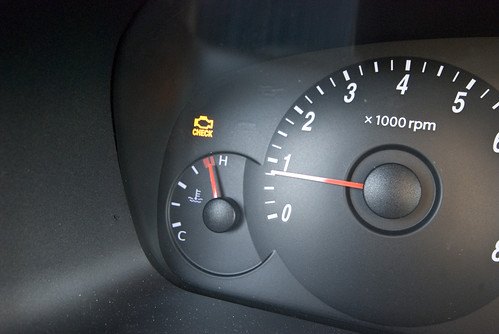Pros and Cons of Extended Warranties on Cars
Published by Nanni on Saturday, October 13, 2012
Photo credit by Carol Browne
When it comes to buying a car, one of the options to consider is an extended warranty. All new cars come with a manufacturer's warranty which states that certain malfunctions of the vehicle and necessary part replacements will be paid for by the manufacturer. The stipulation on the warranty is that these problems must happen within a certain time period of the car being purchased, or within the car being driven a certain number of miles since it was purchased.
An extended warranty is sort of like an add-on to the regular warranty described above. It extends the life of the original warranty by adding additional miles driven, time owned, or sometimes both. Additionally an extended warranty might expand the warranty to cover items or repairs not covered in the original warranty, such as brakes. A single extended warranty could cover both of these options as well, since these warranties can be changed to suit the needs of the person buying the extension.
There are some definite positives to consider when thinking about purchasing an extended warranty. It can be thought of as an insurance policy. If you're worried about the additional cost of wear and tear on a vehicle (especially if you don't repair your own vehicles), then an extended warranty might be one way to ease the stress on both your mind and your pocketbook. For many people buying used vehicles, an extended warranty is like an ace in the hole... you hope you won't need it, but if you do then you can just pull it out to save the day when your car breaks down.
However, not all things about extended warranties are good. They can be very dense, and as such there can be a lot of loopholes contained in them. For instance it's quite possible to say that an extended warranty will cover belts and pistons on an engine, but that it won't cover brakes or regular maintenance. Pistons and belts are essential areas of an engine that are necessary, but people may not realize that brakes are more likely to fail, and thus to need repaired. This downside can be remedied by carefully reading through the extended warranty and seeing for yourself what it does and doesn't cover. Don't be afraid of asking questions either, as sometimes the right explanation is all you really need to understand an extended warranty.
The last item, which doesn't really fit into either a pro or a con is the monetary cost of an extended warranty. If you feel that an extended warranty is a great boon and that it covers all of the necessary parts that you're likely to need replaced for a decent price, then by all means buy one. If on the other hand you don't think that an extended warranty package covers enough possibilities for the money you're handing over, then simply don't get one. How long you intend to have your car, where you'll be driving it, and how often will be large, determining factors in how likely it is you'll need an extended warranty. If you don't drive much or you don't intend to keep the car for more than a few years, then an extended warranty is likely unnecessary. On the other hand if the reverse is true then one of these warranties might be a life saver.
 | Posted in »
| Posted in »

0 comments: Responses to “ Pros and Cons of Extended Warranties on Cars ”